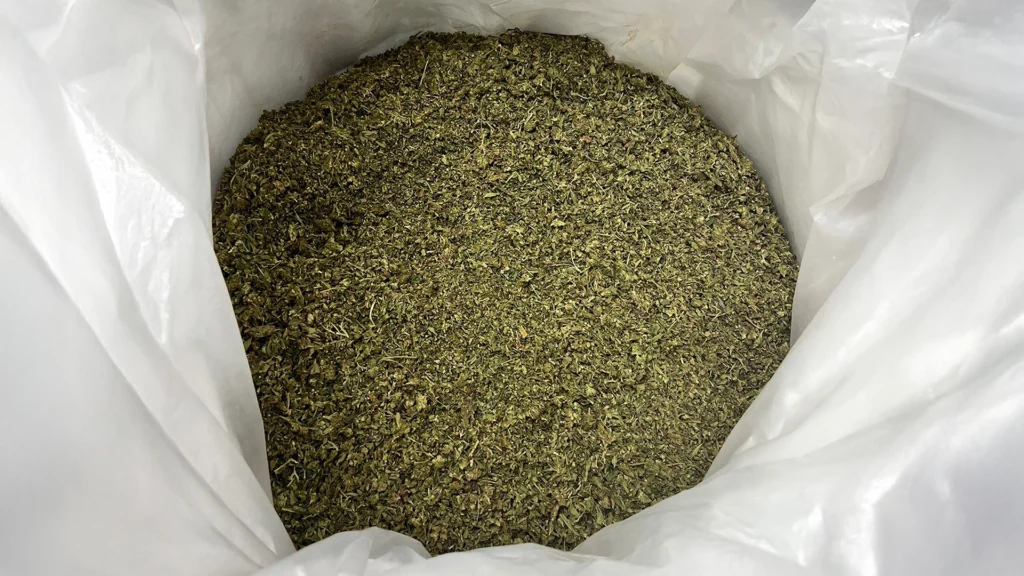GAP Certified Hemp Biomass: What It Means and Why It Matters

In the rapidly growing world of CBD, quality and safety are of utmost importance. Consumers are becoming more knowledgeable and selective about the products they use, seeking assurance that these products are both effective and safe. GAP (Good Agricultural Practice) certification is a key indicator of quality in hemp farming, ensuring that the hemp biomass used in CBD products is produced with the highest standards. Let’s explore the significance of GAP certified hemp biomass, particularly in Thailand, and why it matters for CBD enthusiasts and producers alike.
What is Hemp Biomass?
Hemp biomass consists of the bulk material of the hemp plant, including leaves, stalks, and flowers. This biomass is the raw material used to extract CBD and other beneficial cannabinoids. The quality of hemp biomass directly influences the quality and efficacy of the final CBD products, making it crucial for producers to use high-grade biomass.
Understanding GAP Certification
Good Agricultural Practice (GAP) is a collection of principles applied to on-farm production and post-production processes, ensuring safe and high-quality agricultural products. For hemp farming, GAP certification involves strict guidelines on various aspects, such as soil management, pest control, water use, and worker health and safety. GAP certification signifies that the hemp has been grown and harvested under the safest and most sustainable conditions.
The Importance of GAP Certified Hemp Biomass
1. Ensuring Quality and Purity
GAP certified hemp biomass guarantees that the hemp is grown under optimal conditions, resulting in a product that is rich in CBD and other cannabinoids. These rigorous standards prevent contamination from pesticides, heavy metals, and other harmful substances, ensuring that the final CBD product is pure and safe for consumption.
2. Promoting Sustainability
GAP certification emphasizes sustainable farming practices. This includes efficient water usage, soil conservation, and environmentally friendly pest management. By supporting GAP certified hemp, consumers and producers contribute to a more sustainable and environmentally responsible CBD industry.
3. Enhancing Consumer Confidence
In an industry that can sometimes be plagued by substandard products, GAP certification provides consumers with confidence. It serves as a mark of quality and safety, assuring them that the CBD products they use come from responsibly grown hemp.
4. Traceability and Transparency
GAP certification involves comprehensive record-keeping and documentation. This traceability allows consumers to know exactly where their hemp comes from and how it was produced. Transparency in production practices builds trust and accountability in the CBD industry.
GAP Certified Hemp Farming in Thailand
Thailand is emerging as a significant player in the global CBD market, thanks to its favorable climate and progressive regulations. Good Neighbors Biotechnology is at the forefront of this movement, leveraging GAP certified hemp farming to produce high-quality CBD products.
Good Neighbors Farm: Setting the Standard
Good Neighbors Biotechnology employs both indoor and outdoor hemp farming methods, adhering to GAP standards to produce top-tier hemp biomass and smokable flower. Their commitment to sustainable and safe farming practices ensures that the hemp used in their CBD products meets the highest standards of quality.
From Farm to Lab: A Commitment to Excellence
The journey of hemp biomass from the farm to the final product is meticulously controlled at Good Neighbors Biotechnology. The GAP certified hemp undergoes advanced extraction processes at Good Neighbors Lab, which is certified to GMP PIC/S and ISO 9001 standards. This rigorous approach ensures that the CBD and other cannabinoid extracts are of the highest purity and potency.
Why GAP Certification Matters for CBD Products
Safety and Efficacy
CBD products derived from GAP certified hemp biomass are likely to be more effective and safer than those produced from non-certified hemp. The stringent guidelines of GAP certification minimize the risk of contaminants and ensure that the hemp is rich in beneficial cannabinoids.
Supporting Ethical Practices
Choosing GAP certified CBD products supports ethical and sustainable farming practices. This not only benefits the environment but also promotes better working conditions for farm workers and supports the development of rural economies.
Meeting Regulatory Standards
As the CBD industry continues to grow, regulatory standards are becoming more stringent. GAP certification helps producers comply with these regulations, positioning them as leaders in the market and ensuring that their products meet or exceed industry standards.
The quality of CBD products starts with the quality of the hemp biomass used to produce them. GAP certified hemp biomass ensures that the hemp is grown under the highest standards of quality and safety, resulting in pure, potent, and effective CBD products. In Thailand, Good Neighbors Biotechnology exemplifies the benefits of GAP certified hemp farming, producing top-quality CBD products through sustainable and ethical practices.
By choosing CBD products derived from GAP certified hemp biomass, consumers can enjoy the benefits of CBD with confidence, knowing that they are using products that are safe, effective, and responsibly produced. Support quality and sustainability in the CBD industry by choosing products from Good Neighbors Biotechnology, a leader in GAP certified hemp farming and CBD production in Thailand.
Experience the difference that quality makes with GAP certified CBD products from Good Neighbors Biotechnology. Trust in their commitment to excellence for your health and well-being.

You have noted very interesting points! ps decent website.Raise blog range